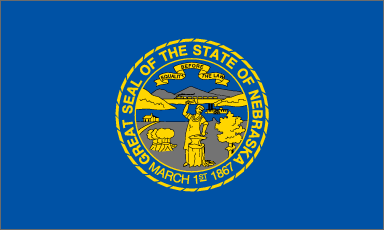On July 17, 2024, Nebraska Attorney General Mike Hilgers (R) issued a formal opinion that said that only the Nebraska Pardons Board—which consists of the governor, attorney general, and secretary of state—and not the legislature, has the authority to restore voting rights or shorten the waiting period for the restoration of voting rights for individuals convicted of a felony. Following the release of the opinion, Nebraska Secretary of State Bob Evnen (R) released a statement in which he said he was directing election officials in the state to stop registering to vote individuals with felony convictions who have not been pardoned.
According to the Nebraska Attorney General's website: "Opinions of the Attorney General are prepared in response to a specific legal question from a state agency or state official in instances where that agency or official has need of a legal opinion in the performance of their duties." Therefore the opinion does not change underlying state law, but is a recommendation on the application of those laws.
The opinion from Hilgers said that two pieces of legislation the Nebraska legislature enacted, Legislative Bill 53 from 2005 and Legislative Bill 20 from 2024, were unconstitutional. LB 53, enacted in 2005, restored voting rights for individuals convicted of a felony two years after the completion of their sentence. Before the adoption of the law, voting rights were only restored if the individual received a pardon. In 2024, Nebraska lawmakers revisited the law and passed LB 20, which removed the two year waiting period and returned voting rights after the completion of a sentence, including parole and probation. Hilgers' opinion concluded saying: "L.B. 20 and the statutes it amends violate the separation of powers. By restoring the franchise for felons, the Legislature impermissibly arrogated the Board of Pardons’ executive power to itself. We conclude that they are therefore unconstitutional."
Following the release of the opinion, Secretary of State Evnen issued a statement saying: "In accordance with the opinion, Secretary Evnen is directing county election offices to stop registering individuals convicted of felonies who have not been pardoned by the Nebraska Board of Pardons," effectively returning the state's law to its form before the adoption of LB 53 in 2005.
It was expected that the Nebraska Supreme Court would ultimately rule on the constitutionality of laws restoring voting rights to people convicted of a felony, but the immediate legal future of the laws was unclear. According to reporting from the Omaha World-Herald: "Hilgers' decision came in an opinion, not a legal challenge, adding a layer of confusion to Evnen's direction, since attorney general opinions do not hold the same authority as state law." Sen. Megan Hunt (D) said, "No matter how they dress this up, don't forget for one second that in Nebraska, legislation has the presumption of constitutionality, and it is constitutional, until a court says otherwise."
LB 20, which passed the unicameral Nebraska State Senate 38-6 on April 11, became law on April 17 without the signature of Gov. Jim Pillen (R). It was the first bill to become law in Nebraska without a governor's signature since 2001. At the time of adoption, Nebraska was the only state to require a waiting period after the completion of a sentence before automatically restoring voting rights. Upon allowing the bill to become law, Gov. Pillen wrote: “The Attorney General and the Secretary of State have identified significant potential constitutional infirmities regarding the bill. These issues relate to LB20’s compliance with several provisions of the Nebraska Constitution, including, but not limited to, Article II, Section 1, Article IV, Section 13, and Article VI, Section 2. … I will allow LB20 and LB20A to become law with neither my signature nor my endorsement of LB20’s constitutional validity.”
Following the reversal, Nebraska is now one of 11 states that do not automatically restore voting rights at any point.



